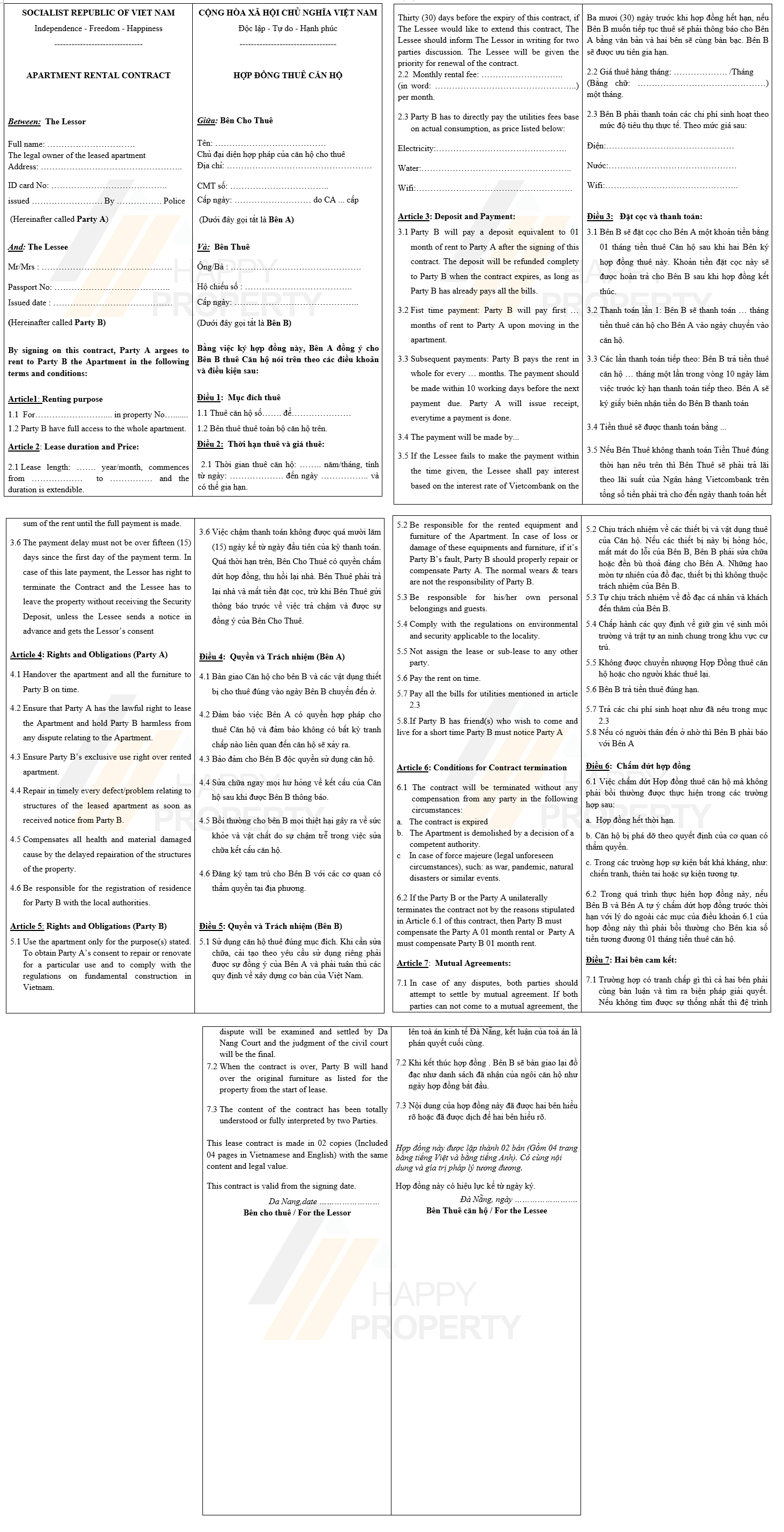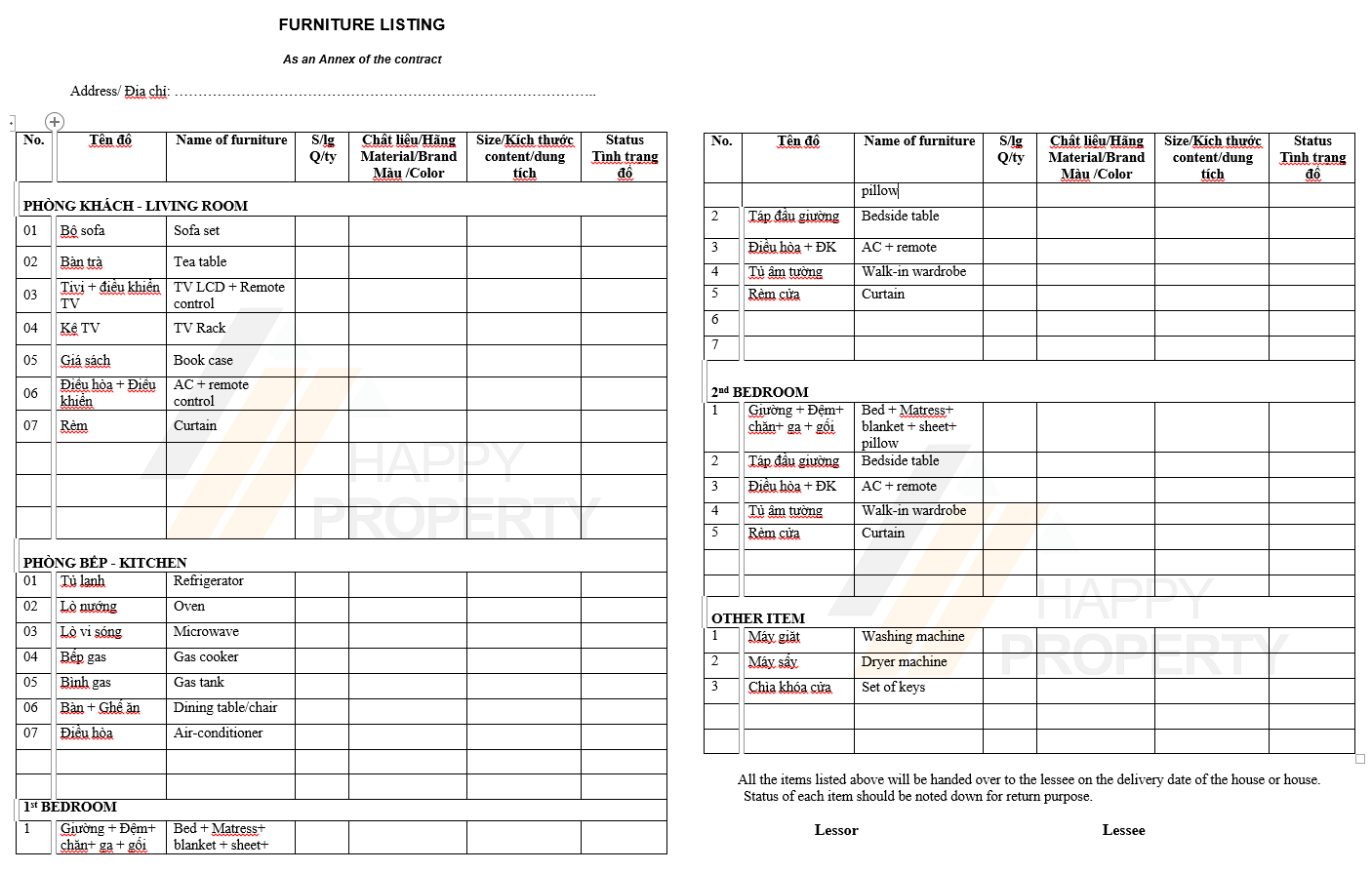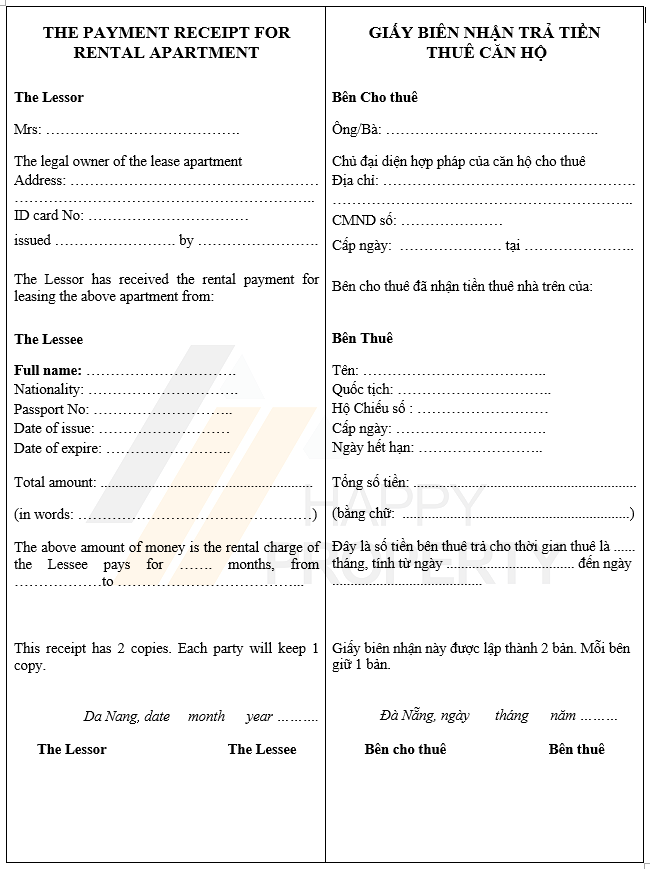A rental contract is very important for any foreigners who wish to rent a property in Vietnam. A contract is the only legal documents that protect your rights when it comes to a dispute with the landlords. Knowing the importance of this document, we are going to tell you everything you need to know about a rental contract in Vietnam and what to look out for when signing a contract.
1. Important terms of a rental contract:
A rental contract is a legal document that states a mutual agreement on the rental aspect. If a contract is an assent and signed by the two parties it’s enforceable by the law. If this is your first time signing a contract these are some of the most important terms you need to keep in mind.
- The Lessor: most of the time is the landlord
- The Lessee: the one who rents the property
- Article: the most important part of the contract, defines the obligation of the two parties ( read these article carefully and make sure you understand everything properly)
- Deposit: the amount of money the lessee has to pay the lessor as insurance for the rental contract. This amount is usually equal to a 1-month rental and will be fully refunded to the lessee when the contract is over, given that the lessee didn’t violate anything in the contract.
- Receipt of payment: a document used as proof that the lessor has paid the rent.
- Furniture listing: a document that lists all the furniture of a property when the lessee first moved in.
2. Rental contract in Vietnam and related document:
2.1 Property Rental Contract:

Here is a standard rental contract in Vietnam you can use for reference. If you are just looking for accommodation this contract is perfectly fine, but if you have other purposes you might want to change/add some of the articles to suit your needs. You can change the property type from apartment to house, villa, or office accordingly.
2.2 Furniture listing
This listing should be provided to you on the day you sign the contract and move in. I highly recommend you check everything thoroughly and note down abnormal things in the status collum.

2.3 Receipt of payment
Make sure you have your landlord sign this document every time you pay your rent. This paper proves that you have already pay your rent, especially when you pay your rent in cash.

You can download all documents here:
https://drive.google.com/drive/folders/1PTABk9C683OTfSdmLFT4RF7unuJcQFfO?usp=sharing
3. Things worth noticing:
3.1 Making structural changes:
99% of landlords don’t allow you to make any structural changes to their property. So make sure to ask them before you do anything even if it’s just some minor changes or else you might have to pay the money to turn it back to its original form.
3.2 Furniture listing:
As mentioned above, there should be a list of all furniture and its condition included in the property. This listing is insurance to both the landlord and the tenants. For the landlords, the listing assures that they will get compensation for furniture that is lost or damaged. As for the tenants, they will only have to pay for the things they broke.
3.3 Guest/Sleepover:
It’s okay to have your friends come and stay for 1 or 2 nights. However, in case they want to stay for a longer period of time, you have to inform the landlords so that they can notify the authority. Not reporting these changes, can cause you and the landlords some hefty fine.
3.4 Late payment fine:
A late payment fine is a common thing in Vietnam when you’re not able to pay your rent on time. The fee varies from different landlords, so keep that in mind and make sure you pay your rent on time. Some landlords will not charge you if you inform them about the late payment.
3.5 Subletting:
Subletting is not allowed in most cases unless you specify it to the landlords from the very beginning. So if you want to earn some extra money by renting your rented property, state your purpose clearly to the landlords and have it included in the contract.
To sum up, making a rental contract in Vietnam is not so complicated. Just put some time into it, do your research, and review everything carefully before giving away your signature then you will be fine. I hope this article helped you have a better understanding of Vietnamese rental contract. If you’re are looking for a place to live in Da Nang – Vietnam, browse our website Happyproperty.com.vn for the best apartments, houses, and villas for rent in town.





